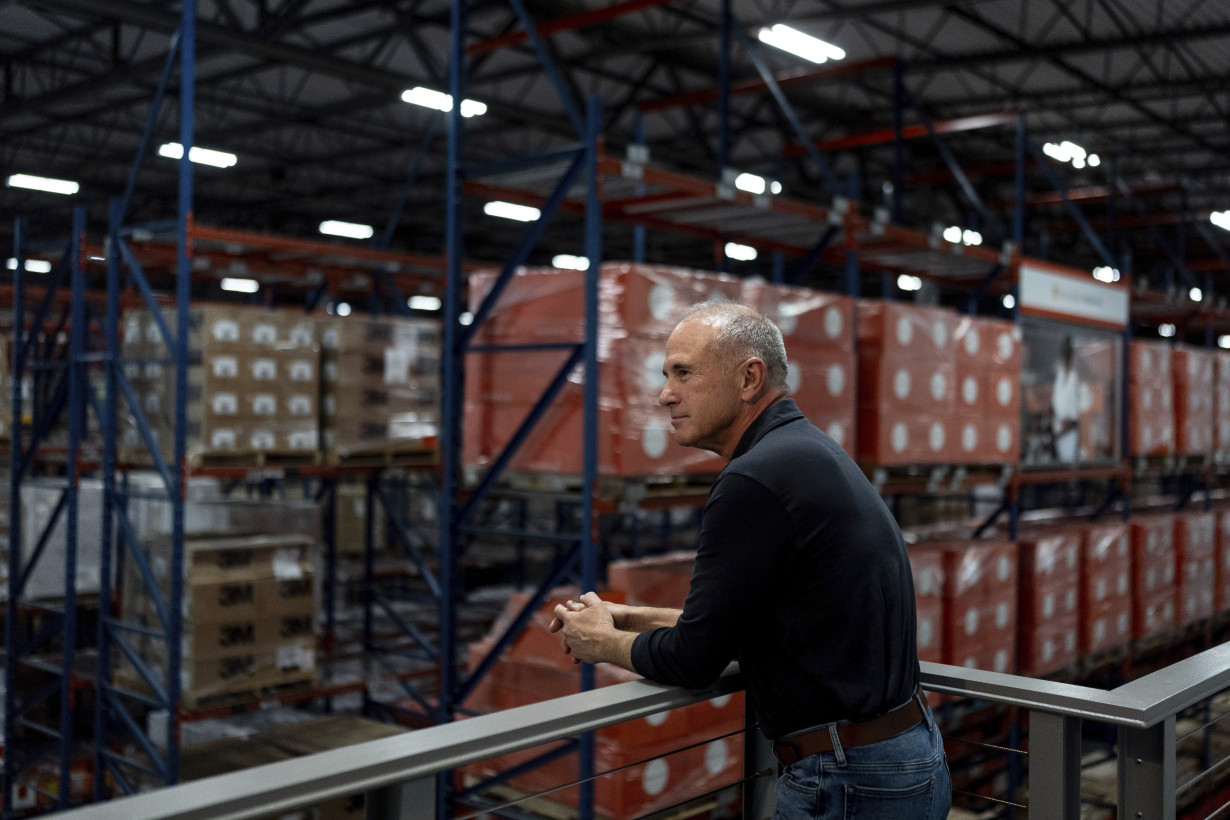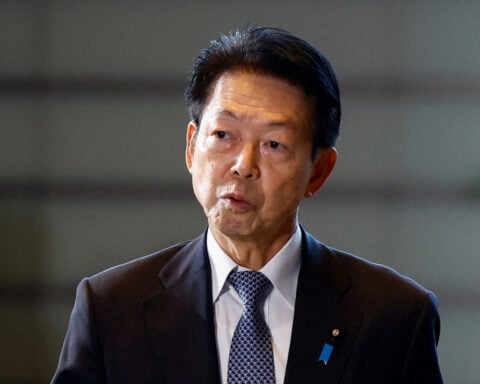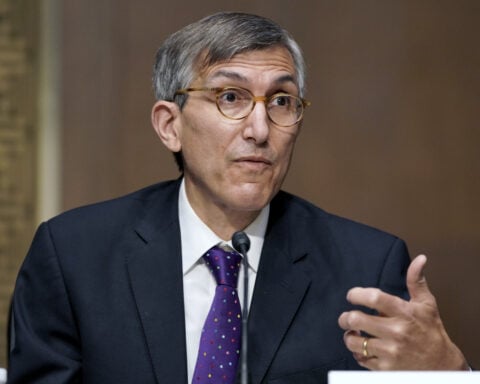SANTA BARBARA, Calif. (AP) — Just days before ending his 24-year tenure as president and CEO of Direct Relief, Thomas Tighe was still so energized talking about delivering free medications to people who couldn't afford them that he seemed to forget he was standing inside an enormous “cold room,” set to a crisp 39 degrees Fahrenheit (4 degrees Celsius).
Tighe, 64, leaned over boxes of Granix, a $1,500-per-dose cancer-related medication on its way to clinics in Central America and Africa. Each container had an advanced sensor to track its location, measure light exposure and monitor temperature.
“Medications and therapies are increasingly sophisticated,” he said. “If we don’t address that gap, then the only people who will benefit from advances in medical science will be people who can pay for it.”
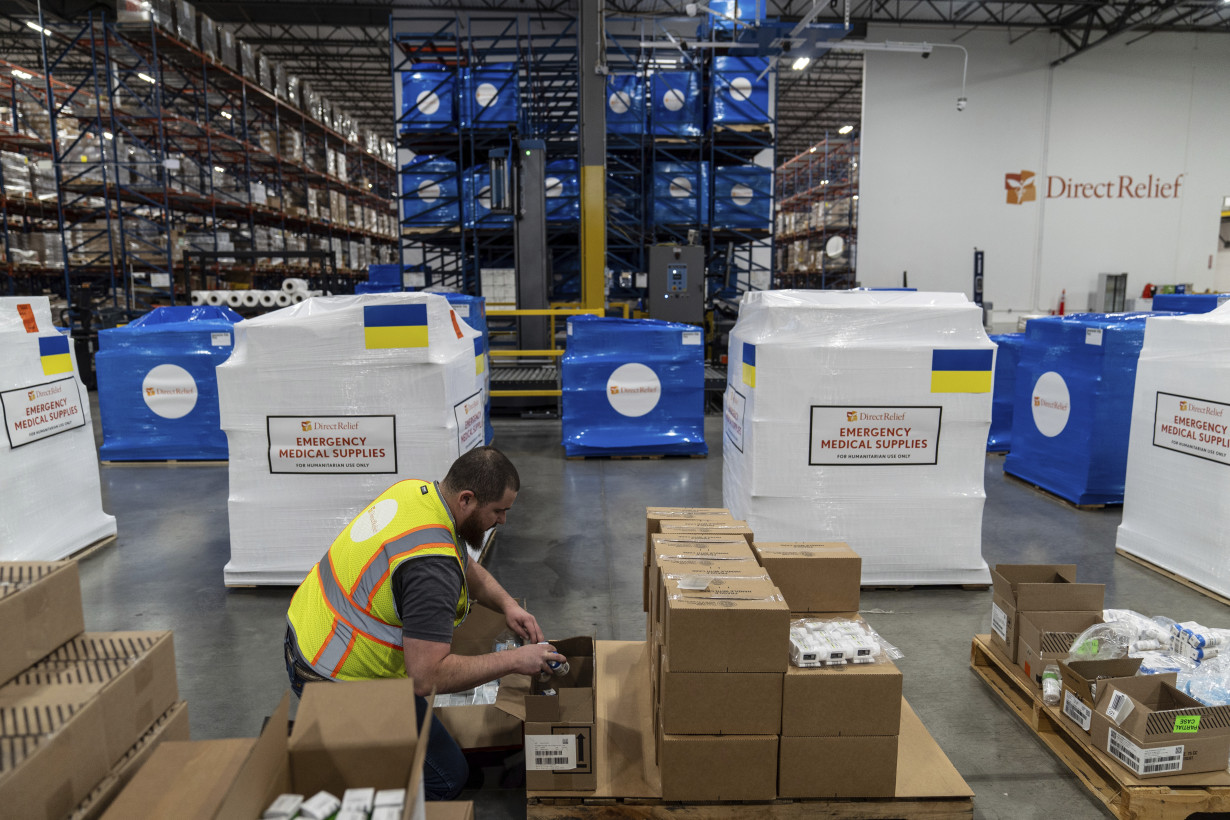
Direct Relief's mission is to expand healthcare access. Founded in 1948, the group supplies free medical resources across the U.S. and globally. Tighe helped transform its operations, embracing technology and courting corporate partners, guided by the idea that a nonprofit health venture could and should run as efficiently as a commercial one.
Today, Direct Relief runs out of a 155,000-square-foot headquarters reminiscent of an Amazon warehouse. It is the 5th largest charity in the United States, and distributed $1.6 billion in medicine and supplies last year.
Tighe spoke to The Associated Press in December about Direct Relief’s growth and responding to crises like Ukraine and climate change. His answers have been edited for length and clarity.
Q: You were a lawyer and a Senate staffer, a Peace Corps volunteer and later one of its chief staff members. How did you find yourself at Direct Relief?
A: In the Peace Corps, I got a sense of the absence of opportunity that exists in life. You see personally how many great people, just by virtue of where they were born and their circumstances, that dictates the course of their life.
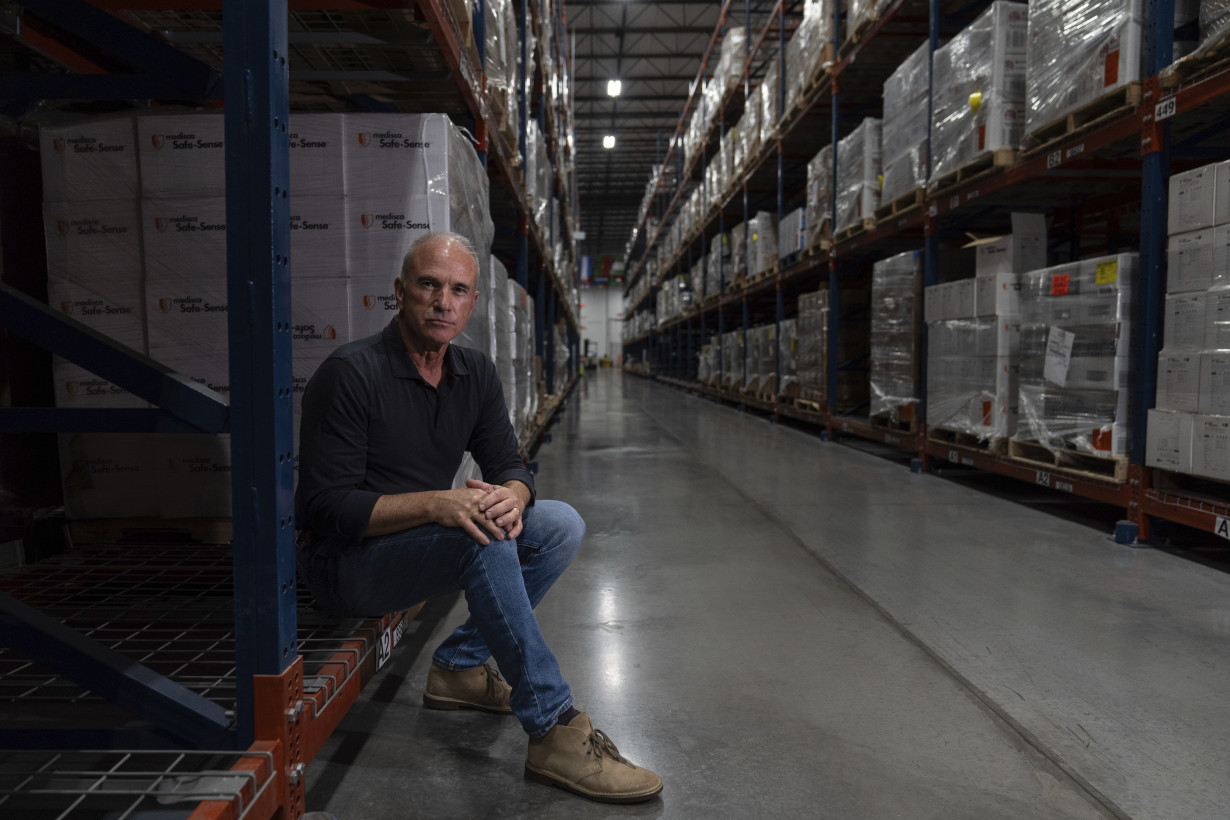
Directionally, the opportunity at Direct Relief was familiar to the Peace Corps, because here’s an organization with a strong history started in a different era. So how do you retain the purpose, the spirit, the sense of service? But the risk is always looking backwards. It’s not 1948 and new opportunities exist, new tools exist.
Q: It was 2000, when much of the technology we rely on today was in its nascency. Yet you embraced innovation early on, why?
A: We’re trying to make a charitable site as efficient as if it were a commercial site. If you look in our distribution center, you can’t tell that this is all done free of charge, and that is by design.
The idea was to bring the best that we’re learning in the commercial sector to bear in something that is philanthropy. We were not necessarily the first, but a relatively early adopter for nonprofits using many of the techniques and systems that are common in the business setting.
Q: Corporate partnerships and philanthropy seem to have played a big role in Direct Relief's success.
A: There’s no way forward without the involvement of the talent and the resources in the private sector. The one dimensional thing that corporations are bad and nonprofits are good … I never accepted that premise. Why not invite everyone? It’s their world too.
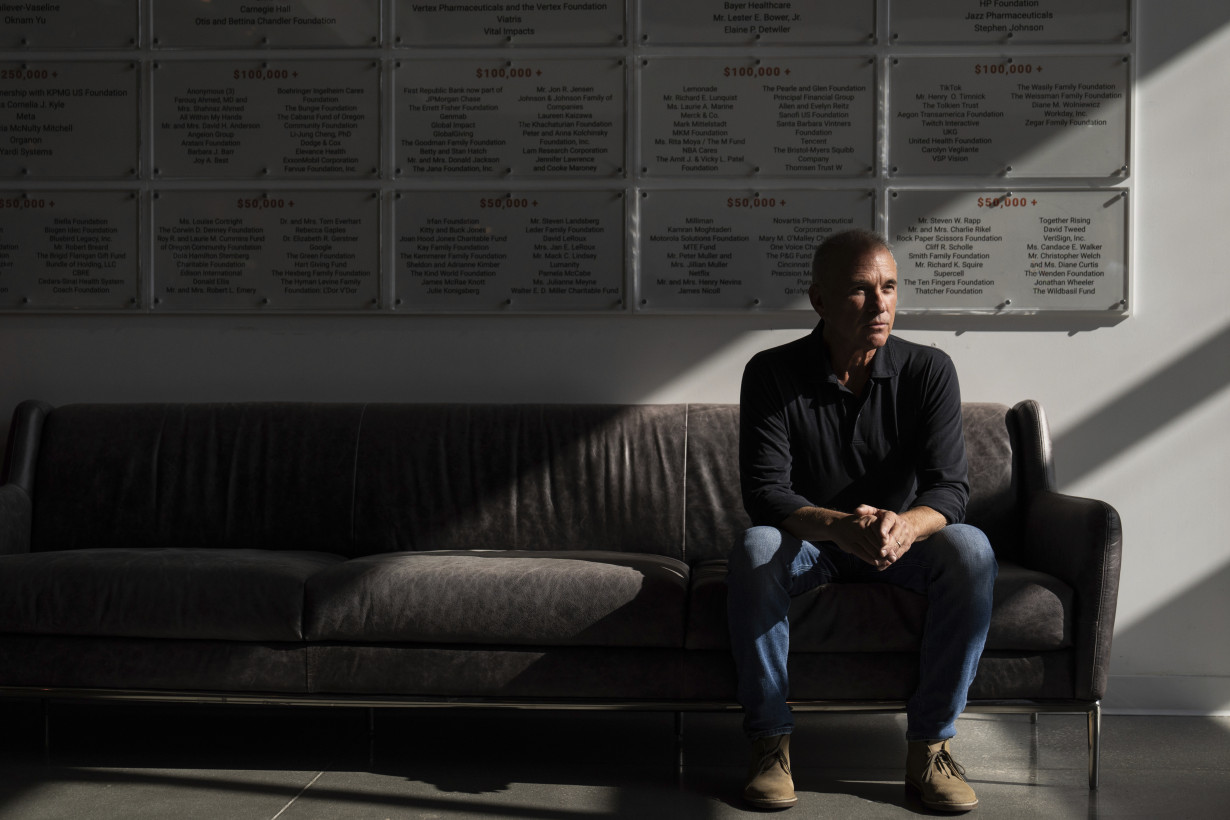
When the 2004 Asian tsunami happened, Google had a link to help the victims and Direct Relief was one of the groups that showed up. We received more support from people in one day than we had in 20 years.
It was a big eye opener. We saw the opportunity to not make everything about obtaining money, but encourage the contribution of services. FedEx has been the instrument through which we’ve been able to do much of the distribution. SAP provided their enterprise system. Extending those services to us is far more valuable than if they just gave us a cash equivalent.
Q: Direct Relief donates medicines and supplies, but now it also funds rooftop solar and backup battery systems for health clinics. What led you there?
A: We’re trying to make sure there’s a resilient power source for the most vulnerable people. In Puerto Rico after Hurricane Maria, unless power was restored, health services were not going to be restored. It was an easy call to recognize the unanimity among its health professionals that we had to get power restored.
When we thought back, versions of that always had happened. Healthcare is highly dependent on power, with electronic medical records, the diagnostic tools, cold-storage medications.
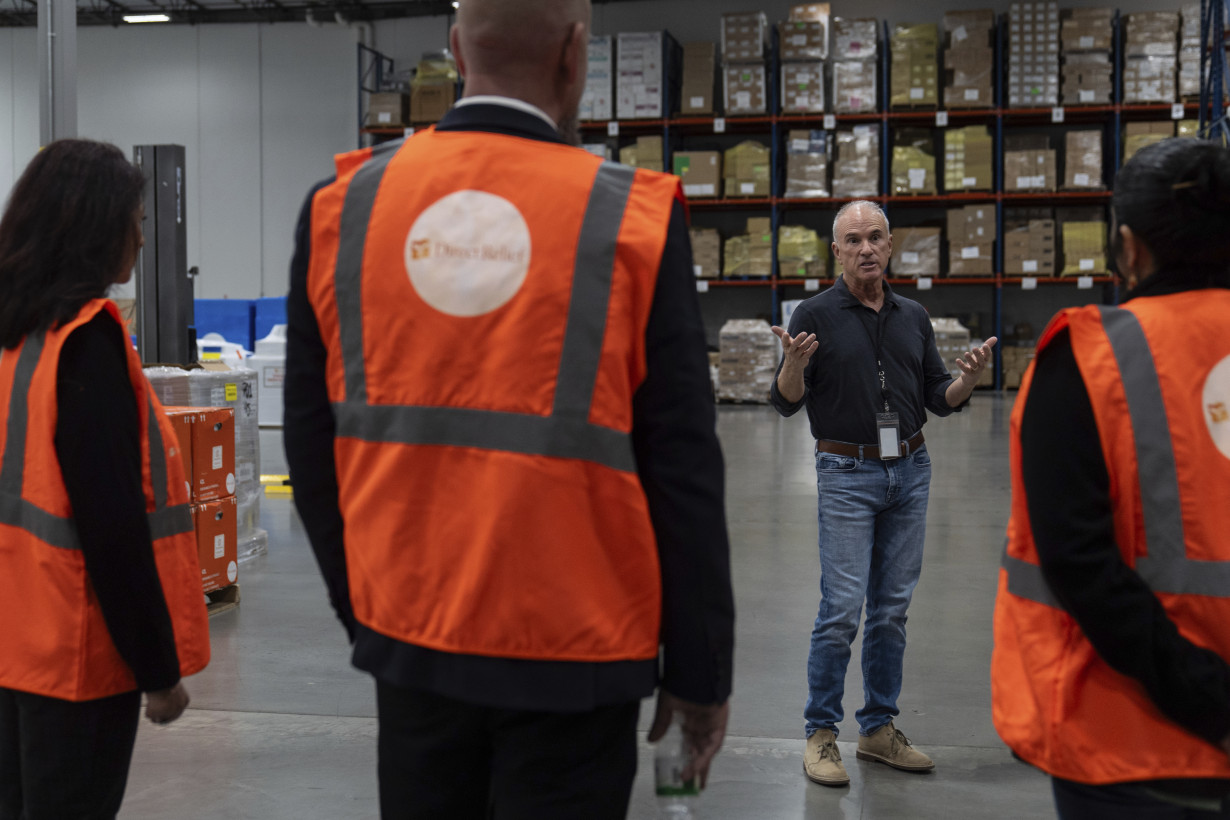
We were trying not to do it because we thought, ‘We’re not a power provider.’ But it’s integral to health services. And like anything, if you say ‘Someone needs to fix that’ enough times and no one does, you think, ‘I guess it’s us. Let’s lean into it.’
Q: You just got back from Ukraine, your last trip as CEO.
A: I’ve been to Ukraine a dozen times. Direct Relief has been able to provide a lot of support to backstop the medical supply as well as fund some of the activities there.
There’s no quit in the Ukrainian people. To see these people really embodying courage to defend themselves, their families, their homeland, it’s moving. It’s also heartbreaking because of the number of young men in particular, and just people who have been victimized by the bombing.
I was there in part to just tell them that they still have Direct Relief support. People continue to contribute for Ukraine. I think it’s probably been over $100 million in cash since the war began nearly three years ago. The contribution of products in the corporate sectors is about $1.5 billion.
It’s by far the largest thing Direct Relief has done in its history.
Q: In your 24 years here, what are you most proud of?
A: It’s been rewarding to be part of the evolution of the organization. To see a relatively small group of people tackle tough issues and do it as well as more prominent groups or bigger places, all from a warehouse in Goleta.
Almost everyone I encounter in this job in 24 years is trying to do something positive, with great motivation. So it’s hard to be cynical about the future prospects of the world when literally almost everyone I meet is like, ‘How can I help? What can we do? I’m concerned about this.’
My personal experience here has been about positive things and generosity, empathy, desire to help. So it’s a weirdly positive view of our species.
——
Associated Press coverage of philanthropy and nonprofits receives support through the AP’s collaboration with The Conversation US, with funding from Lilly Endowment Inc. The AP is solely responsible for this content. For all of AP’s philanthropy coverage, visit https://apnews.com/hub/philanthropy.

 Trump has begun another trade war. Here's a timeline of how we got here
Trump has begun another trade war. Here's a timeline of how we got here
 Canada's leader laments lost friendship with US in town that sheltered stranded Americans after 9/11
Canada's leader laments lost friendship with US in town that sheltered stranded Americans after 9/11
 Chinese EV giant BYD's fourth-quarter profit leaps 73%
Chinese EV giant BYD's fourth-quarter profit leaps 73%
 You're an American in another land? Prepare to talk about the why and how of Trump 2.0
You're an American in another land? Prepare to talk about the why and how of Trump 2.0
 Chalk talk: Star power, top teams and No. 5 seeds headline the women's March Madness Sweet 16
Chalk talk: Star power, top teams and No. 5 seeds headline the women's March Madness Sweet 16
 Purdue returns to Sweet 16 with 76-62 win over McNeese in March Madness
Purdue returns to Sweet 16 with 76-62 win over McNeese in March Madness
